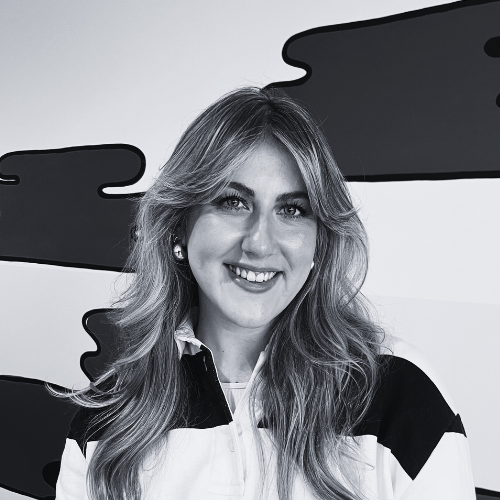What It Takes to Build a Category-Defining FemTech App, According to Amber Vodegel, Founder of Pregnancy+ and 28x
21 Jul, 202510-11 minsWhen Amber Vodegel launched her first health app in 2009, apps themselves were still a bit o...

When Amber Vodegel launched her first health app in 2009, apps themselves were still a bit of a novelty. But even then, she was focused on not just building digital tools, but building solutions.
A few companies later, Pregnancy+ emerged as a category-defining platform: a companion for millions of women navigating the most personal of journeys. Today, it’s the world’s largest pregnancy app, with over 150 million users globally.
But with scale comes something else Amber didn’t quite expect: responsibility.
“When you have two million women a day on the platform, and you’re serving 70% of all first-time mums in the UK, all of a sudden there’s a social responsibility. What are you going to say to all those people?”
Amber is now turning her attention to 28x, her next-generation FemTech platform focused on the full hormonal cycle, not just the four days a month women are traditionally told to pay attention to. Again, she’s building with the same mindset: accessibility, accuracy, and impact at scale.
In this conversation, Amber shares the lessons she’s learned from building multiple FemTech platforms, from the uncomfortable truths behind monetised health data to why trust is the most valuable currency in HealthTech. She talks about why protecting user privacy is a non-negotiable, what it really means to design for every woman everywhere (not just the privileged few), and how she’s creating a blueprint for a smarter, more equitable future of care.
Amber, pregnancy is a profoundly personal journey, and every woman’s experience is unique. With Pregnancy+ so widely used, how did your vision evolve as the app grew, especially in terms of what content you put out into the world?
The sense of responsibility really grew over time. Because we were bootstrapped – no VC money, just old-school reinvesting – we had the freedom to make our own decisions. If you’re venture-backed, you often don’t get that. You need to show growth, return, and traction, so when a big brand offers a partnership, it’s easy to say yes. We didn’t have that pressure. We could step back and ask: Does this actually benefit our users?
That meant saying no to things like cellulite cream ads for pregnant women. I didn’t want to scaremonger people into thinking a bit of cellulite makes them less of a person, especially when most of those products don’t even work. Mostly it’s genetics, so drink more water, walk a bit more, and spend that £80 on something more meaningful.
Turning down big sponsorship money is tough, but for us, it felt like the right thing to do because it allowed us to make ethical choices that matter much more.
Now, with 28x, how are you carrying those same principles forward, and what gaps are you focused on closing?
After I exited Pregnancy+, I started building 28x, a menstrual health app. Period trackers are 10 times bigger than pregnancy apps, simply because more women are menstruating than pregnant. But because of this large market, they’ve become incredibly commercialised. Many of them sit behind paywalls, where you have to pay for certain features to unlock them, and that’s not ok. Your menstrual health should never be something you have to pay to understand.
For women like you or me, maybe that £5 a month doesn’t feel like a big deal. For others, where it’s a choice between a meal or an app subscription, that’s not a fair model. Those freemium tiers create inequality, so I wanted to flip that. I felt like the time of subscriptions was over, and I wanted to build a solution for the 80% of women the market overlooks – women who speak minority languages, who are 12 years old, or live in different parts of the world where they can’t easily be monetised.
We’re told FemTech is booming, but most solutions cater to well-educated, Western, high-income women who can integrate apps with wearable devices. I’m building something different: a platform for every woman, everywhere, no matter their financial background, so they don’t feel the pressure that somehow they’re going to be exploited.
The time when women are the product should really be over, but it's unfortunately everywhere. We don’t need to sell vitamins, thermometers, or menopause clothing. Women don’t want to be sold to. They just want to know what’s normal, what to expect, and who to talk to. That information shouldn’t come with a price tag.
That’s so true. The majority of women I know use cycle-tracking apps, but you have to pay to understand what’s happening in each phase. It’s always monetised, but it’s the kind of information we’re not really taught in the first place, and it can be difficult to access.
Exactly. And that’s because most of the leading period trackers have hundreds of millions in VC funding.
I’m not against VC – I think it can be great for tech. But in consumer health, the only way to return that kind of capital is to exploit the user in some way. They’ll say, ‘Oh, we’ve got employer partnerships, so it’s free.’ And sure, if you work at Google. But what about the cleaner in a local café? She’s not getting access to a free employer-sponsored app, so again, it benefits the top layer of society and leaves everyone else behind.
The second issue I wanted to fix was the use of data. In the past 20 years, we’ve normalised the idea that data equals money. Whether that involves big data, selling data or using data for marketing, everything you do is stored on a cloud server. When it comes to health, that’s incredibly dangerous. Just look at what happened after Roe v. Wade was overturned in the US. In some cases, authorities access cloud data to prosecute women based on their digital footprint. It’s terrifying.
I don’t want to live in a world where my health insurance punishes me because I left cookies on when searching for information on a disorder, or where I miss out on a job because I looked up fertility resources.
It’s really important we keep our health data safe, so we’re rebuilding the backend from scratch. No cloud storage. Everything processes on your device, so you can read about anything – PCOS, STIs, obesity, cancer, domestic violence – without leaving a digital trace. It’s better for privacy and for the planet, and hopefully, it sets a new standard.
That’s such powerful work. I know so many people will benefit from something like this. When will 28x be live, and how can others in FemTech and HealthTech build on what you’re doing?
We’re still building it, but it’ll launch later this year. The goal is to give women real control over their own data and to publish our backend model as open source. If it works, other health apps can copy it. I’d really love to create a blueprint for the future.
Speaking of the future, you’re deeply involved in the AI space. How do you see it shaping the future of personalised healthcare, especially for women?
For a small part of society, it’ll be incredible. AI will power faster diagnoses, better pattern recognition, and seamless integration between wearables, apps and healthcare systems. The worry is that brilliance will only reach the few who can afford it. AI is expensive to run, and these solutions don’t come free, so in one way or another, we’re going to have to pay for it, and that means accessibility becomes a real issue.
If we can’t offer these high-tech solutions to everyone, we must focus on educating women on managing their own health, recognising symptoms and knowing when to act. But again, most commercial period trackers are designed to optimise and convert paying users. There’s still very little for a 12-year-old girl, for someone who speaks a minority language or for those with lower literacy levels.
That’s where 28x comes in. We’ve built three different reading levels, so whether you’re highly educated, dyslexic, or not a confident reader, without judgment, you can choose how the content is presented. For lower reading levels, you get short sentences, simpler language and more visuals. For those educated in clinical language, you can set the app up to have a lot more clinical depth and medical terminology. It’s all about meeting people where they are and making it accessible for everyone.
That level of thought, detail and inclusivity is so impressive. I can’t wait to see it!
When you design for users instead of purely for profit, your thinking shifts. You start asking: Who are these women? Where are they? What do they need?
It’s a completely different mindset. And yes, we’ll be financially successful, but we’ll reinvest the profits in initiatives that support women. It’s a circular model.
You mentor other CEOs in tech through our mutual partner, Boardwave. Beyond FemTech, what challenges do you see founders facing right now, especially with the rise of AI and digital regulation?
First is ensuring you have the right team because you’re only as good as the team you hire. The landscape is shifting so quickly, you might need different skills than you did a year ago. That means more dynamic teams and recognising that not every hire is for the next decade. Some people come in to build something amazing, and then they move on, and that’s ok.
The second is knowing what not to do. It’s easy to fall into the trap of trying to do everything at once, just because it feels like everyone else is doing it, and you don’t want to miss the next big thing, but focus matters. You can’t do everything, so do one thing brilliantly and build from there. Don’t bolt AI onto your product just because everyone else is. Really understand what purpose it’s going to serve.
Thirdly, when it comes to regulation, it’s complex, varies by region and is changing fast. If you don’t have in-house expertise, bring in freelancers or advisors who do. For example, I recently spoke to someone who does a lot of business in the Middle East. They loved our app and committed that all women will go on 28x. The reason was partly that their government no longer wants the data of their citizens stored on Californian or European cloud servers, so they preferred that the data stay on the device and not get stored on an external cloud server. A year ago, that conversation wouldn’t have happened. AI is changing the pace of things, and companies need to evolve fast or risk being left behind.
With so many different approaches globally and so much rapid development, how do you think we should be preparing the next generation for AI?
AI has so many upsides, but we need to evolve with it. The way we introduce it to the next generation really matters. Right now, children are told AI is bad, they’ll be punished for using it in schools, and that it’ll take their jobs in the future. That’s such a negative message. It isn’t going anywhere, so we need to flip the narrative: AI is coming, so let’s explore how we can use it wisely, creatively and responsibly. The jobs they’ll do in 10 years probably don’t even exist yet, so let’s help them stay adaptable. Let AI take care of the repetitive stuff so we can focus on connection, creativity, and the things only humans can do.
As your career has grown, from founder to mentor and board advisor, how has your leadership style evolved?
I think the main thing with experience is that you start to recognise patterns. Every business has its own quirks, but the core challenges are often the same. So now, I can support founders not just through solutions, but by spotting those patterns quickly.
I’m also a better active listener. I don’t feel the need to prove myself, which means I show up with less ego and more honesty, having experienced more failures myself. I can say, ‘I love where you’re going with this, but keep in mind, this part might trip you up.’
Mentoring becomes less about strategy and more about the person. It’s about tuning into their energy, their stress, what’s going on at home, because often that’s what’s really impacting their decision-making.
I spoke to a founder recently who needed help with a company. I looked at him and said, ‘You look exhausted. You don’t need advice, you need sleep. Go home and let’s revisit this conversation tomorrow after you’ve had some rest.’ That kind of care is just as important as business insight. CEOs give so much – they have to believe in the vision, lead the team, keep the energy high – but they’re still human. Often, my role is just helping them hold that weight.
What’s your take on the whole ‘hustle culture’ mentality, the idea that 24/7 grind equates to success? Do you think that holds?
Work can be addictive, especially when you’re a founder. Every milestone gives you a dopamine hit: the next deal, next sprint, next win. But it’s easy to lose balance.
Sure, when you’re 25 with no kids and full of energy, if you want to go all in, go for it – but be mindful to cap it. Time is the only thing you can’t buy, and when you’re 80, you won’t remember the board meetings. You’ll remember the time spent with your family and friends. That’s the stuff that matters.
Some of the most driven and successful CEOs are quite often what I call ‘insecure overachievers.’ There’s a deep need to prove something, to fuel the ego, and that can push you far, but it can also be destructive. Pause and ask yourself: Why am I working this hard? Is it really serving me, or is it starting to cost me?
Everyone is different. Some people don’t need much social time, while others need it to reset and come back sharper. Balance looks different for everyone, but whatever you choose, make sure it’s conscious and it’s your choice, not one driven by guilt, ego or external pressure.
What a perfect note to end on. Thank you for sharing your insights with us, Amber, and for reminding us that when tech is built with integrity, inclusion, and intention, it can drive real, meaningful change. We’ll be cheering 28x on each step of the way!
To follow Amber’s journey and the tech she’s building, follow her on LinkedIn.
For updates on 28x and its mission to make menstrual health more accessible, follow their journey here.
To hear more from founders and leaders shaping the future of tech, make sure you’re subscribed to The Stack.
And if you’d like to hear more from Amber on leadership, don’t miss our upcoming white paper, The Rise of Women in Tech, launching later this year.
The bottom line
Hiring contractors shouldn’t create more work. With Propel, you get flexible, on-demand talent while we manage the admin behind the scenes so you can stay focused on what you do best while we take care of the rest – onboarding, contracts, compliance, and payments.
Your contractors get paid on time. You get one invoice.
Curious how we can help your team scale?



